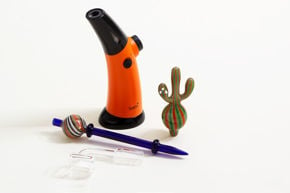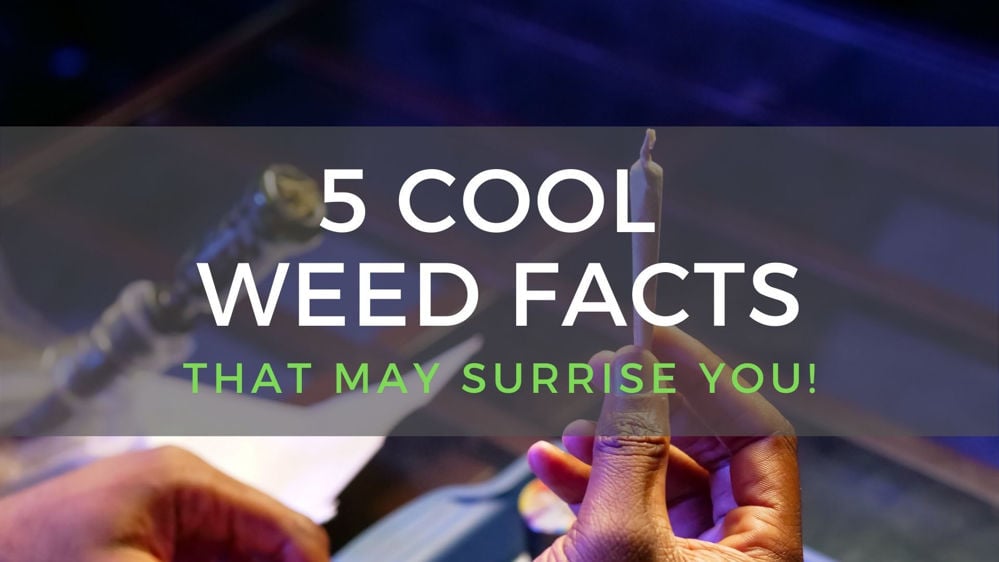You buy weed. You smoke weed. You very well may love weed. But do you really know as much about it as you think you do? Buckle up, because you’re about to discover some interesting cannabis facts that may just make you view the plant a bit differently.
1. MALES & FEMALES RESPOND TO WEED DIFFERENTLY

Did you know that cannabis affects men and women different in different ways? Research conducted at Washington State University found that female rats are 30% more sensitive to the pain-relieving qualities of THC. Not only that, but interestingly enough, the female rats also demonstrated a quicker development of tolerance to THC. These increased sensitivities have led to the assumption that females are at higher risk of developing a dependency on cannabis.
Furthermore, according to research published in the Psychopharmacology journal, females tend to achieve the same effects as males with a smaller amount of THC. This also ties into the phenomenon of females’ heightened sensitivity to cannabis. So, while more men tend to consume cannabis, women are more susceptible to the effects of it. It's been observed that the only area where men are more sensitive to THC is the "munchie effect." Based on this finding, males are more likely to want to ravage their kitchen after a few rips! There's been minimal human research delving into these differences, so there is certainly more to discover on this front to have concrete answers.
2. WEED DATES BACK TO 2737 B.C.
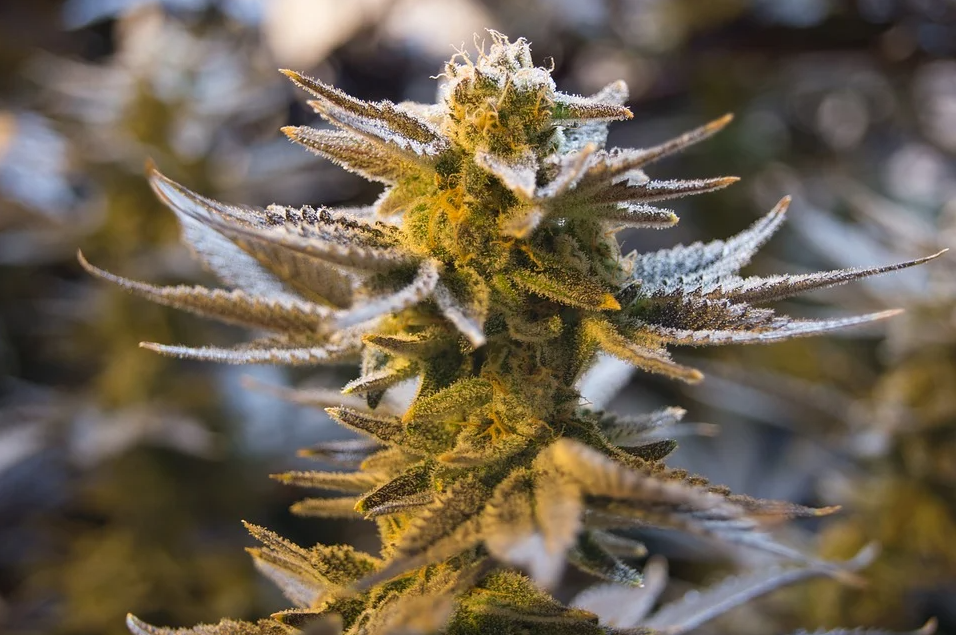
Humans’ relationship with and use of plants goes back to the beginning of time. Even weed goes way back in history! So, when did this lovely little plant come to be, you ask? While there’s no cut-and-dry answer to the beginning of cannabis cultivation, it’s loosely theorized that it began shortly after the dawn of agriculture itself, circa 9,000 BC. However, when it comes to actual written records referencing cannabis, that time period looks a bit different. In 2737 BC, it was referenced in Chinese medicine, when Emperor Shennong "promoted sprouts as an effective medicine." Not long after that, it spread into India, North Africa, and Europe by 500 AD. There are several historical uses including the treatment of conditions such as rheumatism, gout, poor memory, and malaria. At this time, cannabis was often consumed as a tea to achieve the desired healing effects.
Cannabis had more historical uses than just medicine! In several regions, it was also utilized as a food source, believe it or not. For example, in 1,000 BC, Indians created a beverage called bhang lassi. This potent drink consists of ingredients such as milk, nuts, spices, and you guessed it - marijuana. This beverage was consumed as an anesthetic or anti-phlegmatic, and is still consumed to this day! For some, there are spiritual reasons behind consuming bhang, including getting closer to God and to support meditation. Would you ever try this ancient cannabis milkshake?
3. CANNABIS WAS THE 1ST ONLINE SALE

Whether it’s buying essentials on Amazon or copping a shirt from your favorite online clothing shop, we all shop online. According to Statista.com, it’s estimated that there are 2.14 billion global digital buyers in 2021. Well, everything has to start somewhere, as did e-commerce! Believe it or not, cannabis was technically the first thing ever to be sold online. Sometime between 1971 and 1921, computer science students at Stanford University and MIT struck a deal to sell a small amount of cannabis. Using an Arpanet account, the Stanford students sold the MIT students a small amount of weed.
However, it must be noted that this transaction didn’t deal with the exchange of funds through the internet. This wasn’t some magical early form of Ebay that casually allowed weed to be sold. This deal was unsurprisingly illegal, and the use of the internet was more likely to have been a method to arrange a meeting place for the real exchange to take place. But hey, technicalities aside, this is one badass fact.
4. BHUTAN HAS AN EXCESS OF WILD CANNABIS

Bhutan is a Buddhist Kingdom located on the eastern edge of the Himalayas in South Asia, neighboring Tibet. Featuring gorgeous and vast landscapes, its terrain ranges from subtropical plains, to valleys and steep mountains. Along with its striking nature, it’s well-known for its fortresses and monasteries. However, this beautiful place is known for another type of “nature” as well…
Cannabis. Cannabis grows wild and in excess all around the kingdom, like a true weed. (Haha, get it?!) The ironic thing is the fact that the use of cannabis as a drug is totally illegal in Bhutan. Common uses of cannabis that we're familiar with like smoking, eating, or using it for medicinal purposes are not commonplace here. However, it has multiple traditional uses, such as the production of textiles and for pig feed. Interestingly, with more cannabis-loving tourists finding their way to Bhutan, the number of imprisonments for the use and sale of weed have greatly increased in recent years. This has caused Bhutan to heighten the restrictions of cannabis use even further.
5. HOPS AND CANNABIS ARE COUSINS
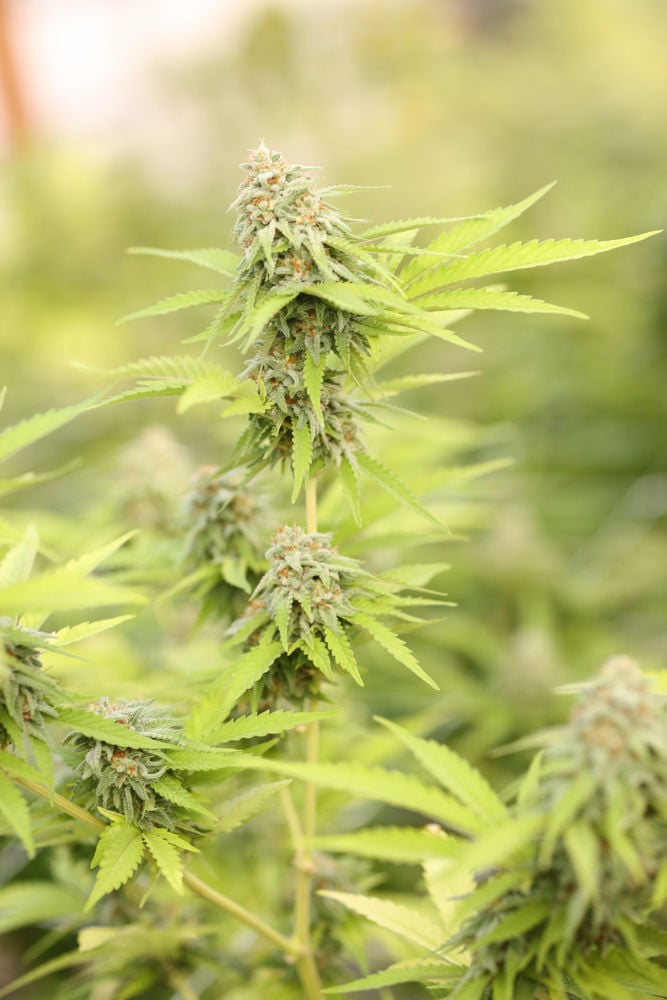
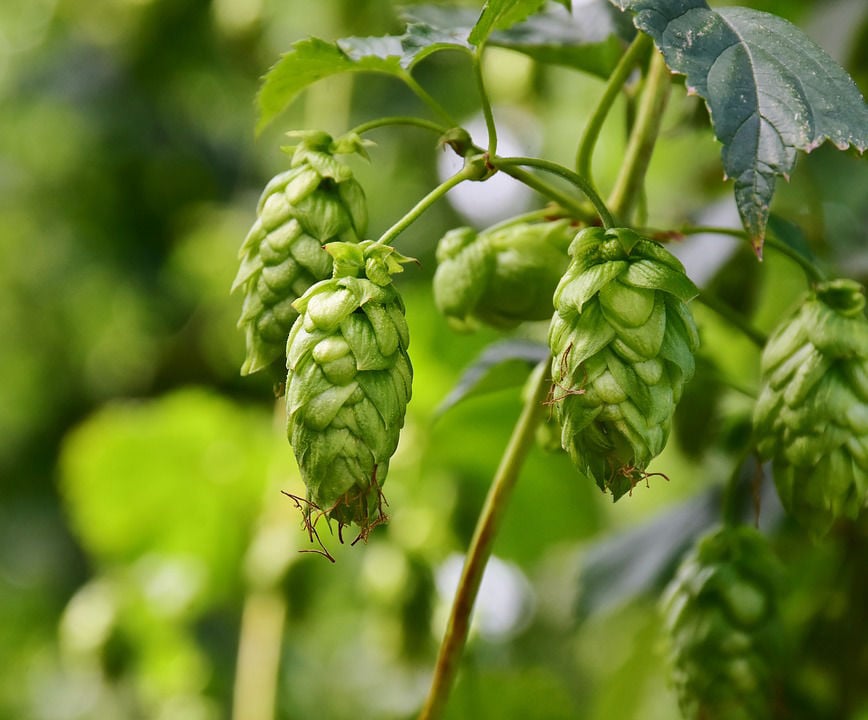
You read that right: Both of these popular intoxicating substances are cousins! Hops, the flower of the hop plant Humulus lupulus, are a green resinous flower. These are cultivated to create all the beer on the market today. The role hops plays in beer is to keep beer fresher for longer, as well as to help retain its head of foam. As well as, of course, the signature “hoppiness” that provides distinctive flavor, aroma, and bitterness.
Both hops and cannabis are closely related, as they are both in the Cannabaceae plant family. Both plants contain terpenes, which are aromatic compounds that create the scent characteristics of many plants. They are also physically similar, both being green and leafy in appearance. And while hops and cannabis share some of the same terpenes, hops do not contain cannabinoids. Mind-altering agents that live within both hops and cannabis includes the alpha-acids adhumulone, humulone, and cohumulone. While there are clear differences between the two plants, their similarities are pretty striking!
IN CONCLUSION...
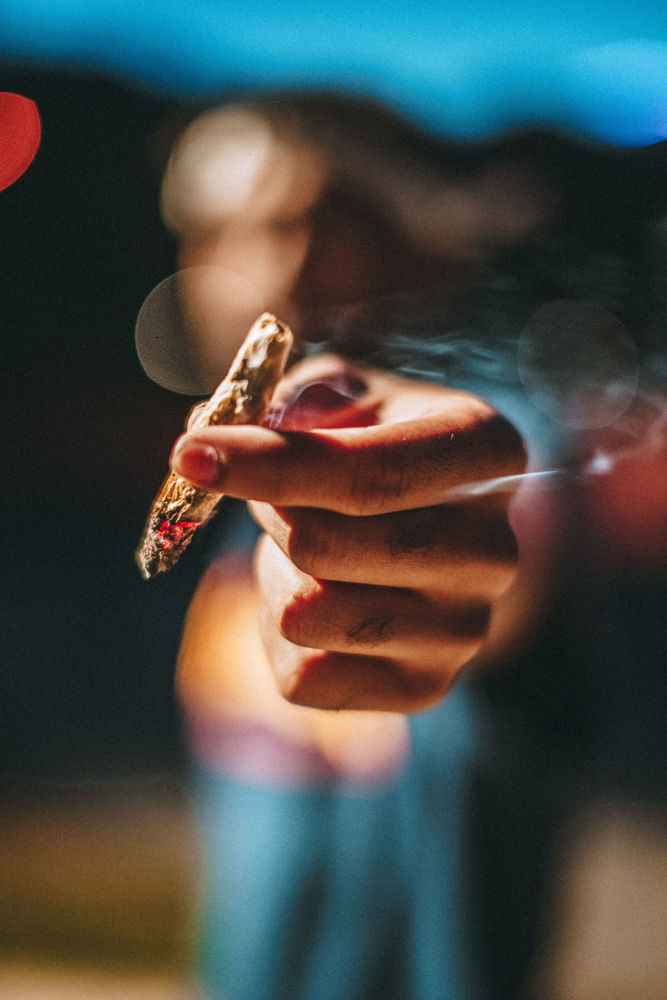
There you have it: Our favorite cannabis facts! Because weed is a part of so many people's lives, it doesn't hurt to have a bit more knowledge about what you consume every day. Out of the five facts we've gone over, which one surprised you the most?
by Vanessa Matthews






